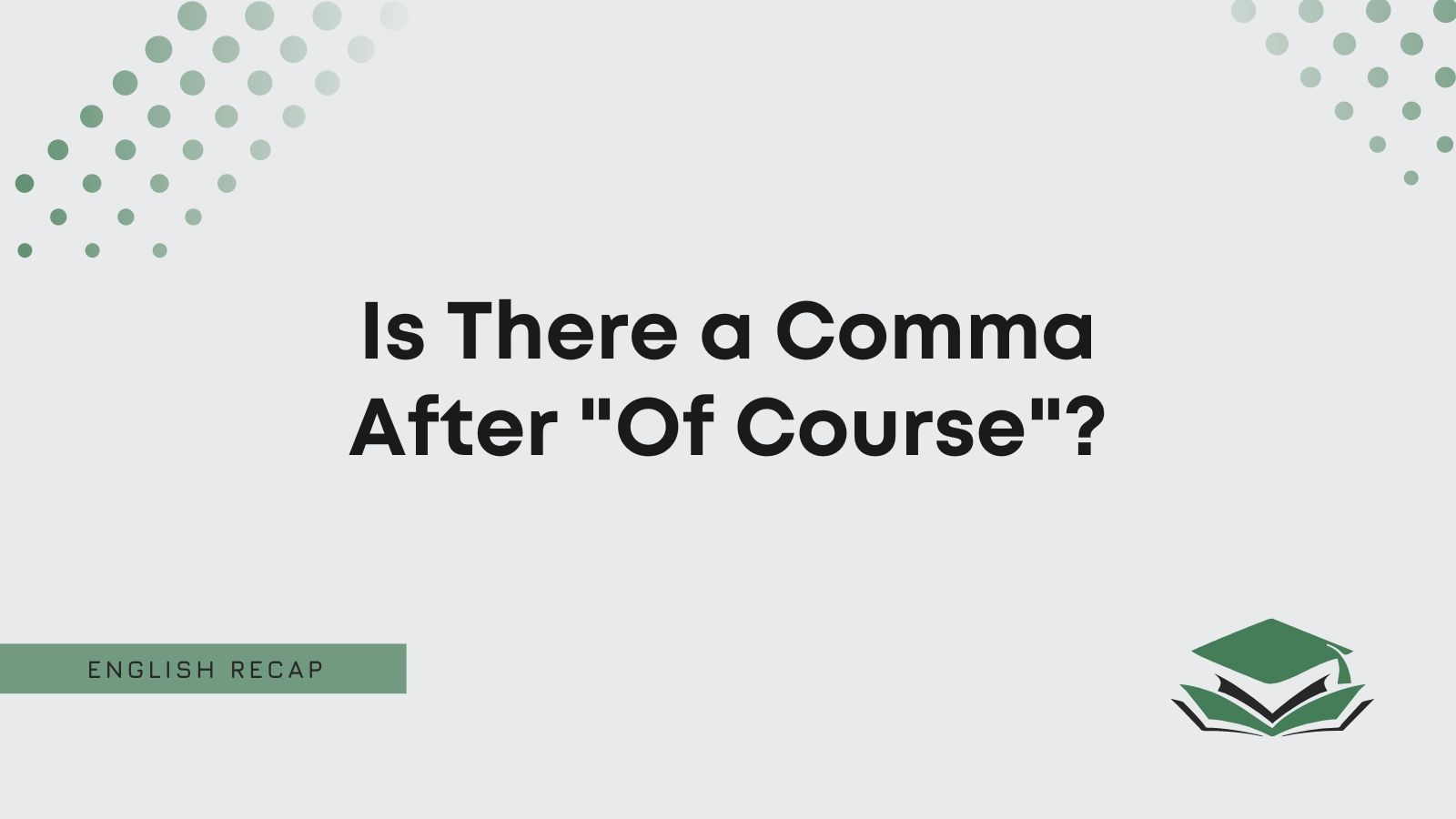Rule 1: You can use a comma with “of course” when it starts a sentence.
However, it is not always necessary.
- Correct: Of course, you can borrow my pen.
- Correct: Of course you can borrow my pen.
Rule 2: You can use a comma after “of course” when you use it as an interjection mid-sentence.
However, it is not necessary all the time.
- Correct: Her husband is unemployed, so, of course, she has to pay for everything.
- Correct: Her husband is unemployed, so, of course she has to pay for everything.
Rule 3: It is best not to use a comma after “of course” when the interruption is slight or the sentence’s meaning is obvious and straightforward.
- Correct: Of course I am going to work, it’s Monday.
- Correct: Of course, I am going to work; it’s Monday.
Keep reading the rest of the article to learn more about when you should use a comma after “of course” and when it is not necessary. You can also discover when to use a comma before “of course.”
When to Use a Comma After “Of Course”
To discover when to use a comma after “of course,” please check Rule 1 and Rule 2.
Rule 1: You can use a comma after “of course” when it starts a sentence.
However, “of course” functions slightly differently from other introductory terms because it is not always necessary to use a comma when it starts a sentence.
When “of course” modifies the whole sentence, it is best to use a comma.
- Of course, we listened to every word he said with great concentration.
However, it is best not to put a comma when it is just used as a quick transitional phrase.
- Of course you can stay for dinner. There is plenty of food.
Rule 2: You can use a comma after “of course” when you use it as an interjection in the middle of a sentence.
You use “of course” as an interjection to add extra information or drama to the sentence.
Therefore, it is usually followed by either a comma or an exclamation mark if you want it to be even more dramatic.
- We saw the security footage, but, of course, she denied it.
- We saw the security footage, but, of course! She denied it.
When you use the term “of course” with “unless,” you should put a comma before and after “of course.”
- I will come with you unless, of course, you want to be alone.
Furthermore, when you use “of course” as an interjection, putting a comma is not always necessary. When the strength of the interruption is minor, you can omit the comma.
- Healthy eating is of course the staple of a healthy lifestyle.
When to Avoid a Comma With “Of Course”
Rule 3: You should not use a comma with “of course” when the interruption it makes is minor.
Also, when a sentence is clear and easy to understand, you can omit the comma.
- My children are of course my pride and joy.
- Of course I’ll help you. Just tell me what you need.
Please note that it is possible to add a comma in these examples. However, as the Chicago Manual of Style says, a comma is not necessary before “of course” when the sentence is straightforward.
When to Use a Comma Before “Of Course”
When choosing whether to put a comma before “of course,” you should refer to Rule 2.
Rule 2: Use a comma before “of course” when you use it as a non-essential interjection mid-sentence.
In these instances, adding the comma before and after adds more emphasis and makes the interjection more dramatic.
- I told her I was a vegetarian, but, of course, she cooked roast chicken.
Conclusion
You should use a comma after “of course” when it starts a sentence and modifies the whole sentence. Also, when it appears mid-sentence as an interrupter, put commas before and after. However, you can omit the commas from “of course” when its role is minor or in basic sentences.

